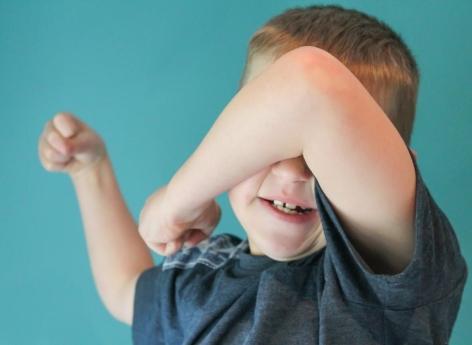Supporting a child who hits requires patience and kindness.

Seeing your child hit can be confusing for a parent. Yet this behavior is often an expression of unmet emotions or needs. Before intervening, it is important to understand why a child may hit.
Understand the causes to act better
In toddlers, hitting often stems from an inability to deal with frustration or express emotions in other ways. For example, a two-year-old child, frustrated by an imposed limit, may react with aggressive gestures because he still has difficulty mastering language. Likewise, a child who is jealous of the attention given to a sibling may tap to express his or her discomfort.
Some children react more quickly with gestures while others seek to test limits to better understand social rules. In these cases, it is essential to identify what is driving these behaviors. For example, a child who is tired or lacking attention may resort to violence to get his parents’ attention.
Set clear and consistent limits
When a child hits, immediate response is essential. Firmly but calmly say that this behavior is unacceptable: “I understand you’re angry, but I’m not going to let you hit me. » Place yourself at their height to reinforce the visual connection and the impact of your words.
If the same rules apply to all situations, the child will gradually understand what is allowed and what is not. For example, if he hits a friend to get a toy, explain to him that he must ask or wait his turn. Likewise, after a conflict, impose a time out to calm tensions.
Support the child in managing his or her emotions
The role of the parent is also to provide tools to better manage emotions. If the child seems overwhelmed by his anger, techniques like a firm hug can help him feel secure and calm.
Don’t hesitate to encourage him to express his emotions in words by asking him to name what he feels with illustrations or colors. Remember to offer him moments of free play or physical activities adapted to channel his energy. For example, a symbolic activity like playing battle with clear rules can be beneficial.
If, despite everything, aggressive behavior persists or destabilizes you, do not hesitate to consult a professional such as a psychologist. Early support will enable appropriate solutions to be provided.
Find out more: “My child hits” by Patricia Chalon and Ollivier-Chantrel Colette.
















